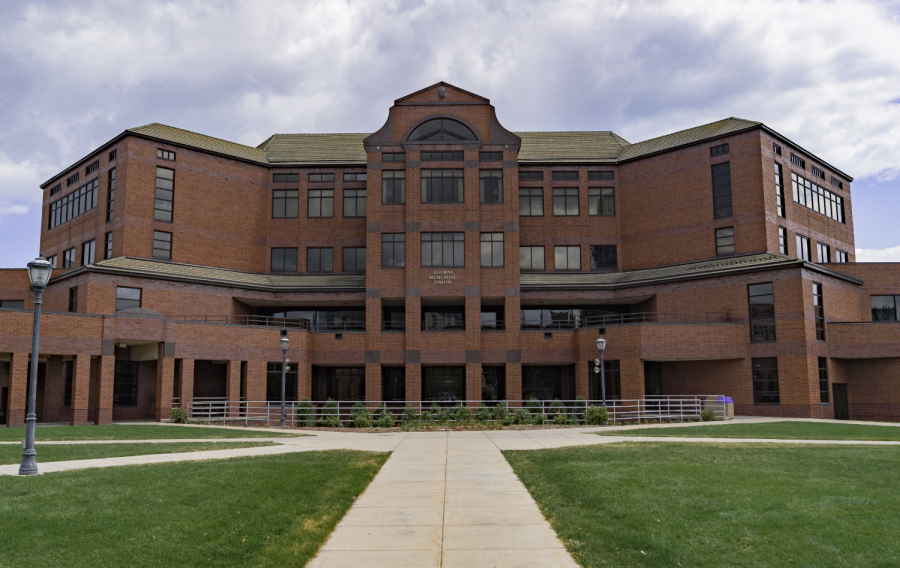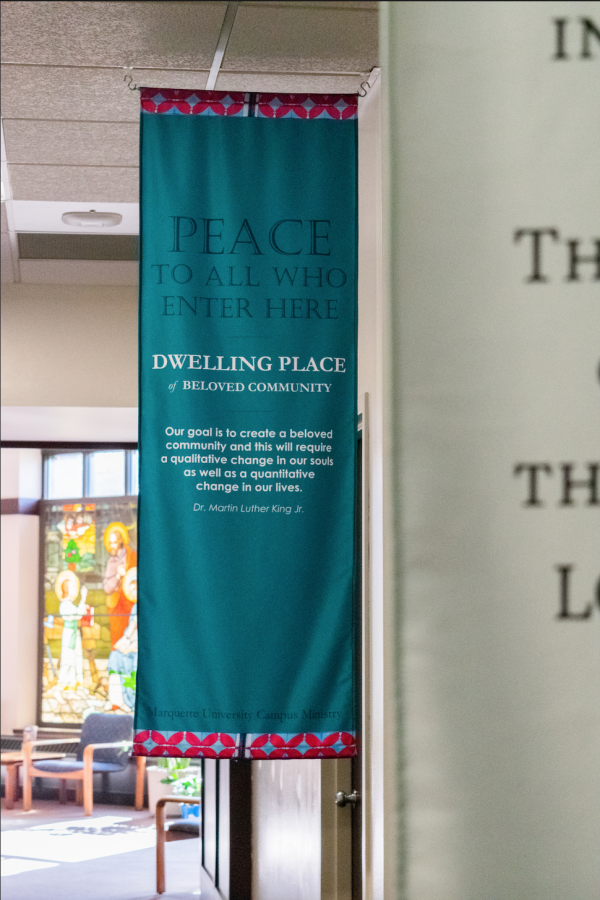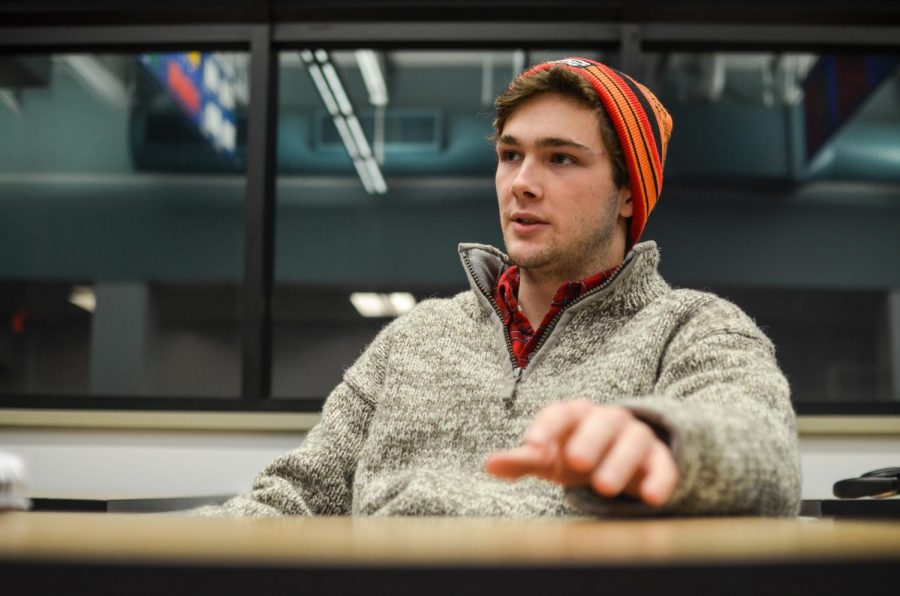“I have very little faith in any follow through with that,” Aidan Miano, a senior in the College of Business Administration, said about the university’s recent decision to replace Easter and mid-term spring semester break with four Mental Health Days.
“In theory, they’re awesome,” Miano said. “But I’m still fully expecting my professors to do something like, ‘Since my class is canceled, you’ve got these two extra classes to watch and a test on Thursday,’ or something like that.”
In a Oct. 16 news release, and letter from Provost Kimo Ah Yun, the university announced its Mental Health Days for Feb. 8, March 10, April 20 and May 5 rather than its usual five-day spring semester break and Easter break.
“University leadership recognizes that it can be difficult to manage the anxieties and stress associated with this pandemic,” the news release said. “The Mental Health Days will provide students the opportunity to rest and recharge while reducing unnecessary travel.”
The spring semester will start one week later than usual and is set to begin Jan. 25, with the semester ending May 8. Though Easter Break is canceled, the university will still acknowledge April 2, Good Friday, as a university-wide holiday.
John Su, vice provost for academic affairs , said the university has been exploring the right calendar for the Marquette community since April.
“We have modified our approach as the pandemic has evolved,” Su said in an email.
Su said the recent spring semester changes began with conversations and input sessions at the start of September.
“Since this affects all of us, we wanted to get a broad range of voices,” Su said in an email.
Su said the university solicited feedback at a campus Town Hall Forum as well as the University Academic Senate executive committee, Marquette University Student Government, Graduate Student Organization, deans, department chairs, the COVID-19 academic planning group and the Response Team.
“I didn’t quite expect it to be so severe and pretty drastic,” Miano said. “The Mental Health Days are nice, but I don’t trust it.”
Su said that the Mental Health Days were decided by listening to students and recognizing the importance of preserving shorter breaks even if it was important to eliminate longer ones.
“For Marquette, it was important to emphasize that we need explicitly to address mental health and well-being as part of our Catholic, Jesuit mission,” Su said in an email.”This is an extraordinary challenging time for us all and it’s important to signal that all of us need opportunities for mental health and well-being breaks.”
When assistant professor in the College of Arts & Science Brittany Pladek heard the news of spring break being canceled, she said her initial reaction was confusion. She first learned of the cancelation by reading the Oct. 16 news release.
“While I do appreciate the university’s desire to stem the spread of COVID by keeping students on campus, which I’m assuming is the rationale behind getting rid of spring break, I don’t think that the implementation of the Mental Health Days is going to be a sufficient alternative,” Pladek said.
Pladek said her students this fall semester are already stressed out from the lack of a fall break, which was a day shorter this year than it was in previous years.
“Our term is shorter than it normally was, but it is not that much shorter,” Pladek said. “Students are already extremely burnt out, distressed. Professors are already burnt out from the stress of teaching in a new format and teaching during an unprecedented global pandemic.”
Pladek said she thinks the university could have come up with a more creative solution rather than implement the Mental Health Days, in which Pladek said she thinks they are very oddly placed.
“I can guarantee you if there are two Mental Health Days in the middle of a week that has regular work at the beginning of the week, neither students or professors are actually going to stop working,” Pladek said.
Marquette University Student Government was part of the discussion in deciding the spring semester and its breaks. Su met with several MUSG executive board members and senators to discuss the benefits and implications of keeping a regular spring break or of shifting the spring semester.
“We recognize how difficult and abnormal it is to cancel a Spring Break. Its effects include not providing the opportunity for student to fly or visit home and taking time away from students to relax and recharge,” MUSG President and senior in the College of Nursing Evelia Guerrero said in an email.
However, Guerrero said executive board members and senators also recognized that reducing spring break could help decrease the spread of COVID-19 among students and community members.
“The health and safety of our students is a priority and while this shift if unprecedented, we are hopeful that it will contribute to reducing community spread and helping Wisconsin reduce its amount of cases,” Guerrero said in an email.
Though Miano said he was disappointed by the news of break being canceled, he said it was not a total surprise to him.
“It’s pretty on par,” he said. “If anything, they’re trying to be safe. In my opinion, it wasn’t a matter of “if,” it was a matter of when and it’s kind of nice to have some certainty.”
In trying to minimize people from traveling to and from campus, Miano said he thinks this is the “best option.”
Will Hitesman, a junior in the College of Arts & Sciences, said he was surprised, and somewhat disappointed, by the university’s decision.
“But after I read through the letter from the Provost, I understood the reasoning behind their decision,” Hitesman said in an email.
While surprised, Hitesman said it’s best to not have breaks at the moment.
“Given the risk of travel, both for the people at the destination and for students returning to campus after a trip, it wouldn’t be wise for students to have an extended break,” he said in an email.
Hitesman said he thinks the university decided to go with the safer choice and make a decision now regarding the spring semester and breaks with little idea of how the pandemic will change in the future.
“A decision either way would influence travel plans for many students, so it’s best to make a choice earlier rather than later,” Hitesman said.
While Hitesman said that it’s good that Marquette recognizes the mental benefits of breaks and is trying to retain some break period by implementing the Mental Health Days, he said the university should make their COVID-19 responses clearer.
“All the information can be found easily enough if one knows where to look, but I know plenty of students who are still unclear on topics, like the LIMO service,” he said.
In the news release, the university asked for continued patience and flexibility as plans in place may need to change based on government and medical official guidelines.
“If future guidance requires a different action, be assured that the safety of our students, faculty and staff will be the most important factor in our decisions,” the news release said.
Hitesman said he did not have set plans for the spring, but he would have gone home to Illinois. For Miano, this was going to be the year he would try to lead and manage a team for M.A.P, or Marquette Action Program, a service trip program dedicated specifically dedicated towards Spring Break. Miano has been involved with M.A.P. since his first year at Marquette.
But with the cancellation this spring, Miano said it gives them time to rethink their service.
“It’s nice to know the certainty and plan around it,” he said.
Overall, Miano said he thinks there should be expectations for professors so the Mental Health Days can be honored.
“I really hope that professors ease up, on and around those days and really allow those students to unplug,” he said. Though he said his final semester of senior year will be lighter than previous semesters he’s taken, he hopes that first-year students, sophomore and juniors will have the chance to unplug.
Su said no assignments for undergraduate and graduate students should be due on Mental Health Days.
“That time being away from class and just being able to, not turn your mind off, but let it cool down and let it unwind, it is just so important,“ Miano said.
Pladek said she is happy that the university released their plans now so that she and other professors have this information to start planning around the Mental Health Days. Yet, she said she does not know what this will mean for her class syllabus.
“I think it will make syllabus planning a little bit more challenging for me personally,” Pladek said. “But my bigger worry is actually the fact that my students now effectively will have no real breaks next term, no university sanction(ed) break.”
Because of this, Pladek said she will try to build in some kind of longer break for her students.
“I don’t think it is reasonable to expect students to just work throughout the term,” she said.
Though Pladek said she appreciates the university trying to prevent students from traveling during the spring, she said she always comes back to the same question: “Why are we relying on the idea that we should have in person classes in the first place?”
This story was written by Natallie St. Onge. She can be reached at natallie.stonge@marquette.edu.









